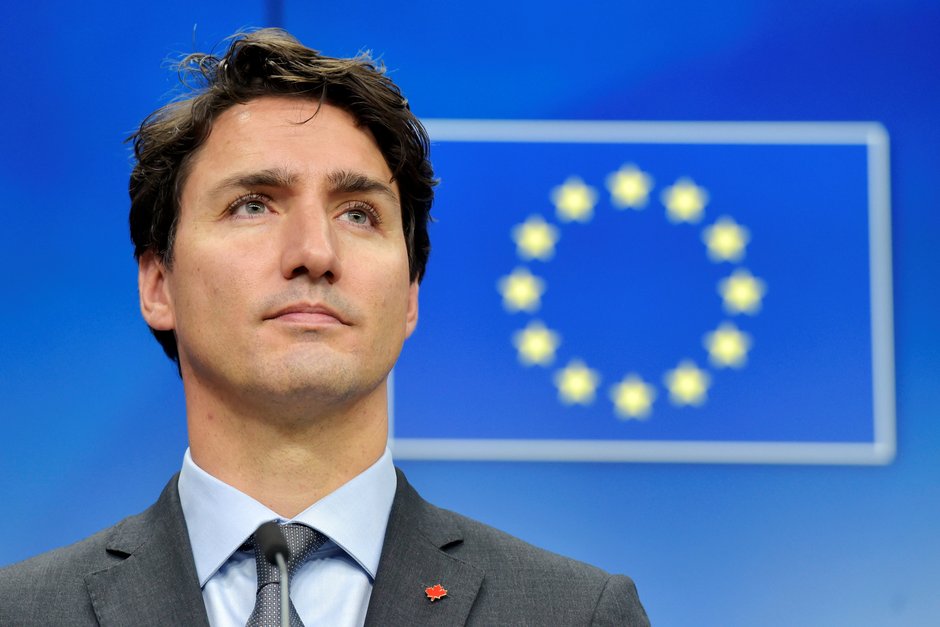Thursday, September 21

THE COST OF FREE TRADE
Landmark Canada-EU free trade agreement comes into effect

Today’s provisional implementation of the Comprehensive Economic and Trade Agreement (CETA) is the culmination of seven years of negotiation between the EU and Canada.
98% of the provisions in CETA can be applied today, pending ratification by individual EU member states’ national and regional parliaments. To date, Latvia, Spain, Denmark, Croatia and the Czech Republic have all ratified the agreement.
Today’s activation notably excludes the controversial Investment Court System provision, which was sent to the European Court of Justice by the Belgian provincial parliament of Wallonia. While the court’s opinion is non-binding, a finding unfavourable to CETA would give the parliament a legitimate case to block full ratification.
As Canada’s largest trading partner in Europe, the UK has indicated its desire to transition the EU trade agreement to a bilateral one, a sentiment echoed by Canadian Prime Minister Justin Trudeau.
Based on previous referrals to the European Court of Justice, we can expect CETA to remain un-ratified by for a number of years. Ratified or not, CETA will likely form the basis of any bilateral agreement between the UK and Canada post Brexit.
ONE BELT TO RULE THEM ALL
Pacific and Indian Ocean island nations meet in China

As part of its One Belt One Road initiative, China will host a summit of 13 island nations today, with attendees from Sri Lanka, Fiji, the Maldives and Mauritius.
The conference is part of an ongoing effort by China to implement its vision for maritime cooperation, which was announced earlier this year. A key component of this concept is the creation of “Blue” Partnerships with the states located along maritime economic corridors linking Asia with Africa, Oceania and Europe.
Beijing’s stated aim is to use these partnerships for cooperation on key regional issues, such as rising sea levels, environmental protection, and maritime economic development, as demonstrated by its engagement with the Philippine government to jointly exploit oil and gas reserves in the South China Sea.
Even as China touts the advantages of these partnerships, its focus on maritime infrastructure loans has proven a double-edged sword for some countries, such as Sri Lanka, which have become overburdened with foreign debt.
While no new initiatives are expected to come from today’s meeting, expect China to use the dialogue to demonstrate that its maritime vision is not just a port building exercise and that Beijing is a supportive and responsible partner.
Delve Deeper: Risky Business: Financing ‘One Belt, One Road’
STILL NEUTRAL?
US forces join largest Swedish military exercise in decades

It is war-gaming season in Europe. While Russia recently concluded its Zapad drills, Sweden will enter the final phase of its Aurora 17 exercise today. It is the Nordic country’s largest military drill in over two decades, involving almost 20,000 Swedish troops.
The operation simulates a hostile power invading the large island of Gotland, which is strategically located in the middle of the Baltic Sea. Aurora 17 highlights Sweden’s increasing efforts to boost its defence forces and cooperation with the transatlantic alliance and its neighbours. While Stockholm has opted to stay out of NATO, several alliance members—most notably the United States—are participating in the Aurora 17 exercises.
Although Sweden doesn’t face a direct military threat from Russia– or any other country for that matter– tensions have risen in recent years. Russian incursions into Swedish waters and air space have become more frequent, prompting Stockholm to bolster its Baltic Fleet with the addition of a new corvette and advanced Su-30SM fighter jets.
In line with its current trajectory, Sweden will likely continue to strengthen its armed forces and coordination with NATO, but remain just shy of membership.
NEVER TOO OLD
Ugandan parliament to debate controversial presidential age limit

Today, Uganda’s parliament will discuss a controversial bill that would see the presidential age limit removed from the constitution. As it stands, anyone over the age of 75 is ineligible to stand for president.
The motion has been introduced by President Yoweri Museveni’s National Resistance Movement, Uganda’s ruling party. Mr Museveni–who has ruled Uganda for more than three decades–will be 77 by the 2021 election, making him the main beneficiary of the bill.
The issue has polarised Ugandan society. On Monday, police detained 11 people, including an opposition MP, who were protesting against “life presidency” for Museveni; two lawmakers came to blows over the bill in parliament.
With the president’s National Resistance Movement enjoying a comfortable majority, the bill, whenever it is formally voted on, is expected to pass.
HAPPENING ELSEWHERE…
French protests, Saudis re-connected, fine-tuning Brexit

One of France’s most powerful labour unions has called for its members to down tools at power plants around the country to protest President Macron’s labour reforms. Mr Macron is expected to decide on implementing the changes on Friday.
Today, Saudi Arabia will lift a ban on voice over internet protocol providers, such as Skype and WhatsApp. The move is being painted as part of a push for ‘digital entrepreneurship’, which itself is part of a broad strategic plan to wean the Kingdom off it dependence on oil revenues. Access to VoIP services was banned when new regulations—widely believed to clamp down on dissent—were introduced in 2013.
The British cabinet will meet to fine-tune the government’s Brexit strategy a day before Prime Minister Theresa May is expected to make a key Brexit speech in Florence. More on this tomorrow morning.


